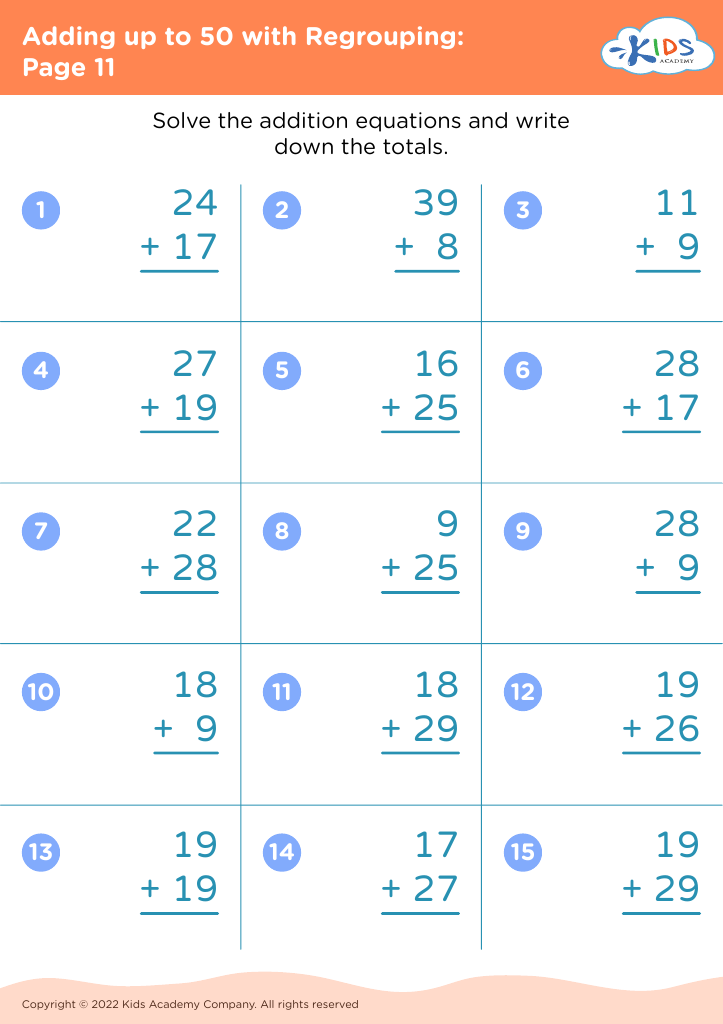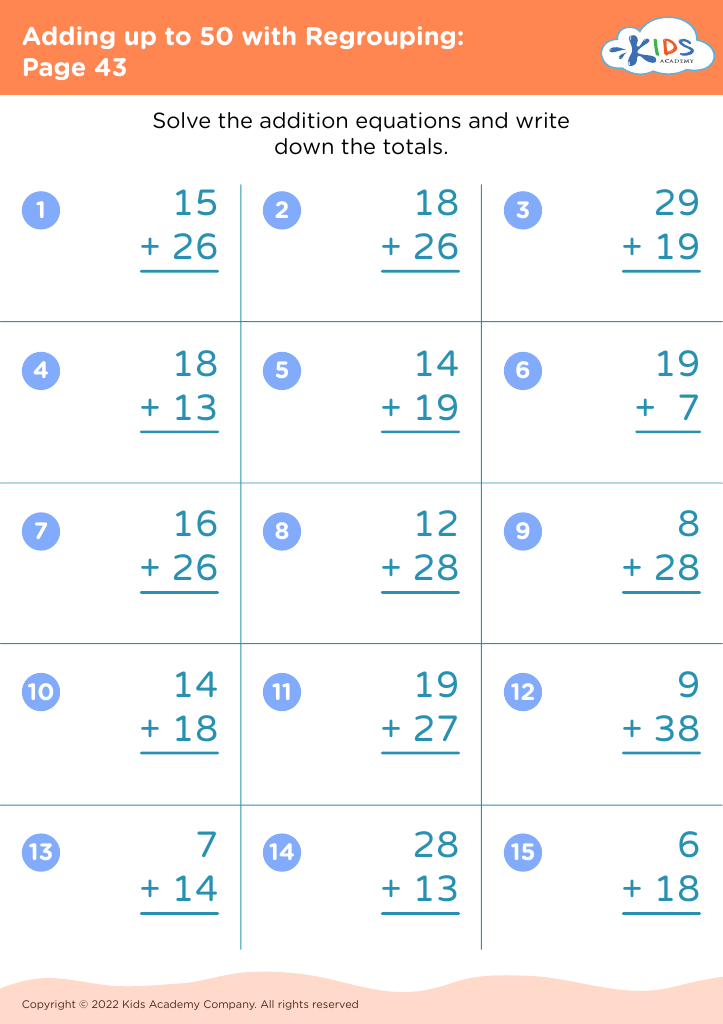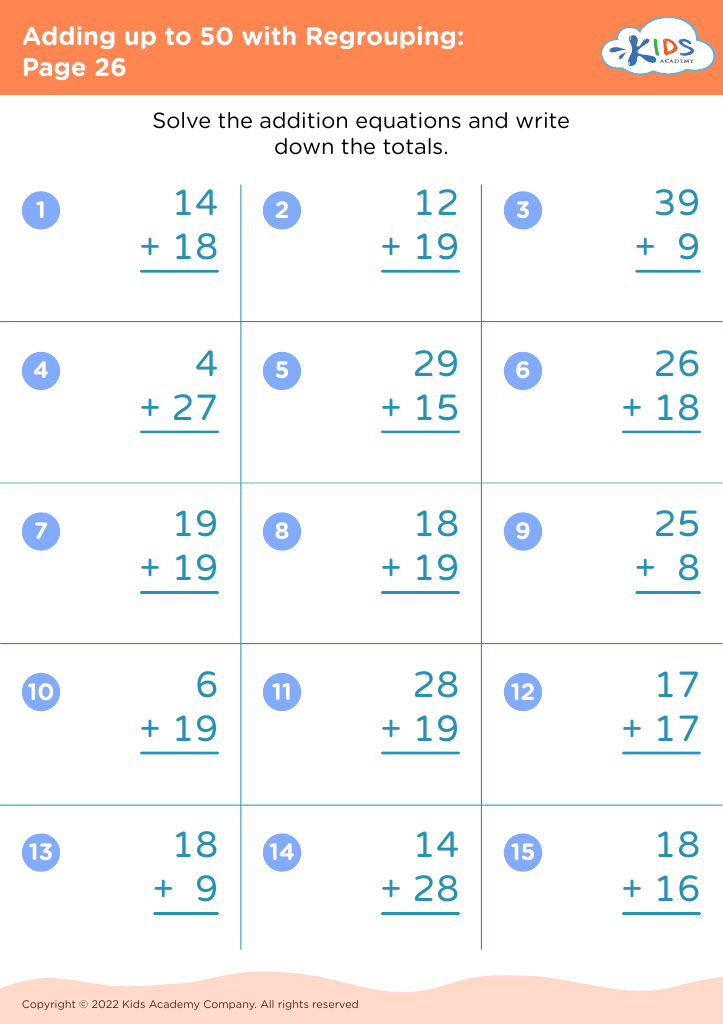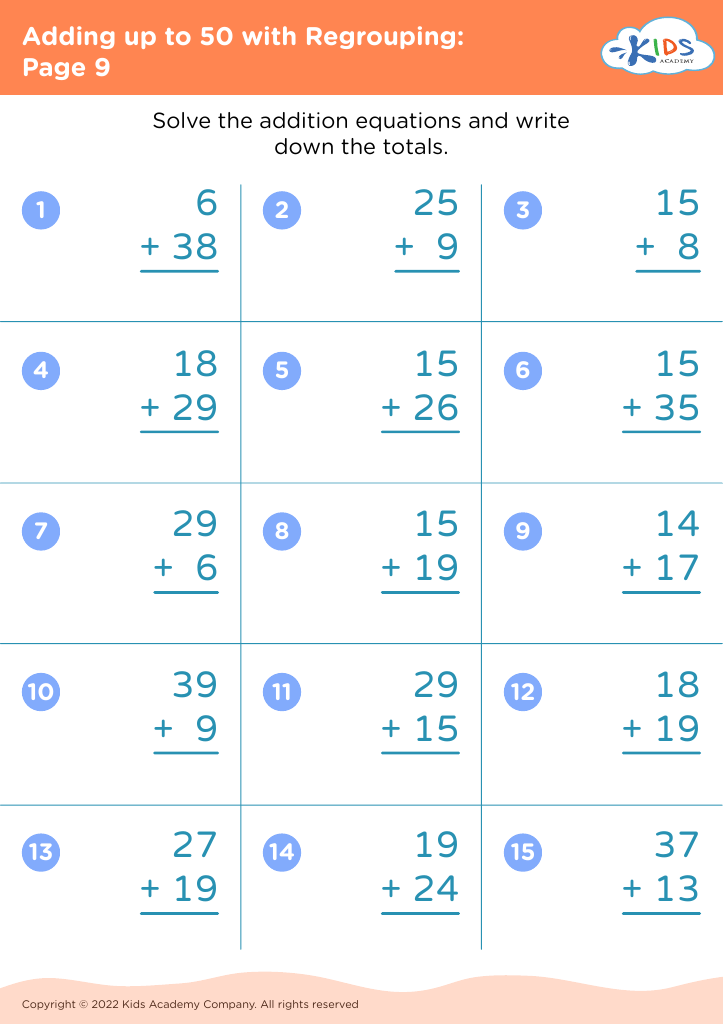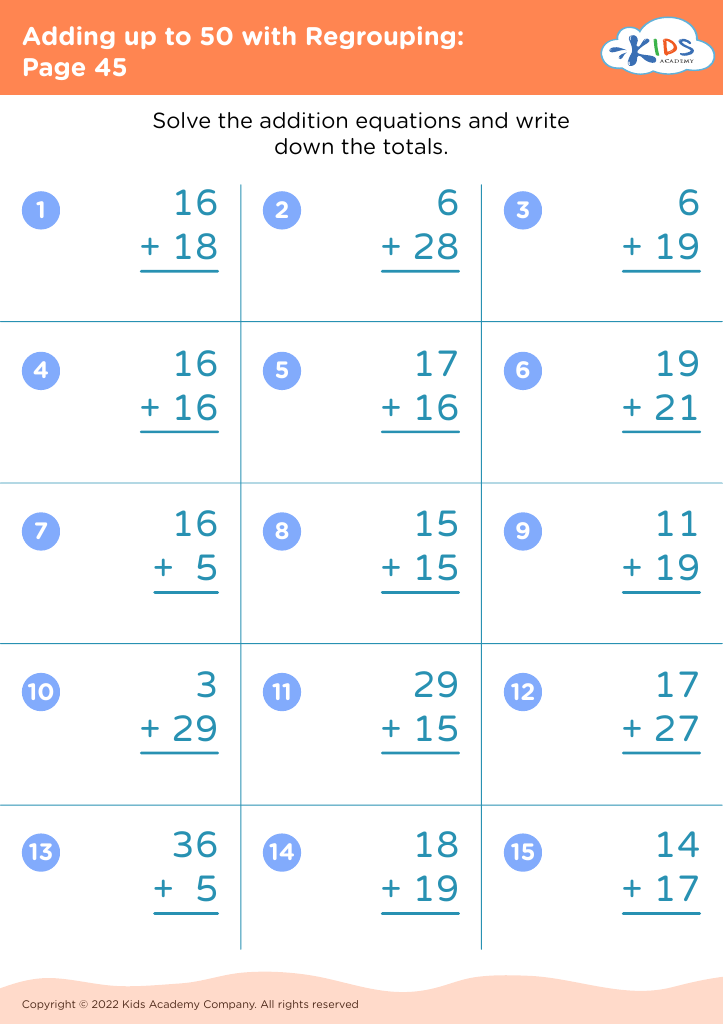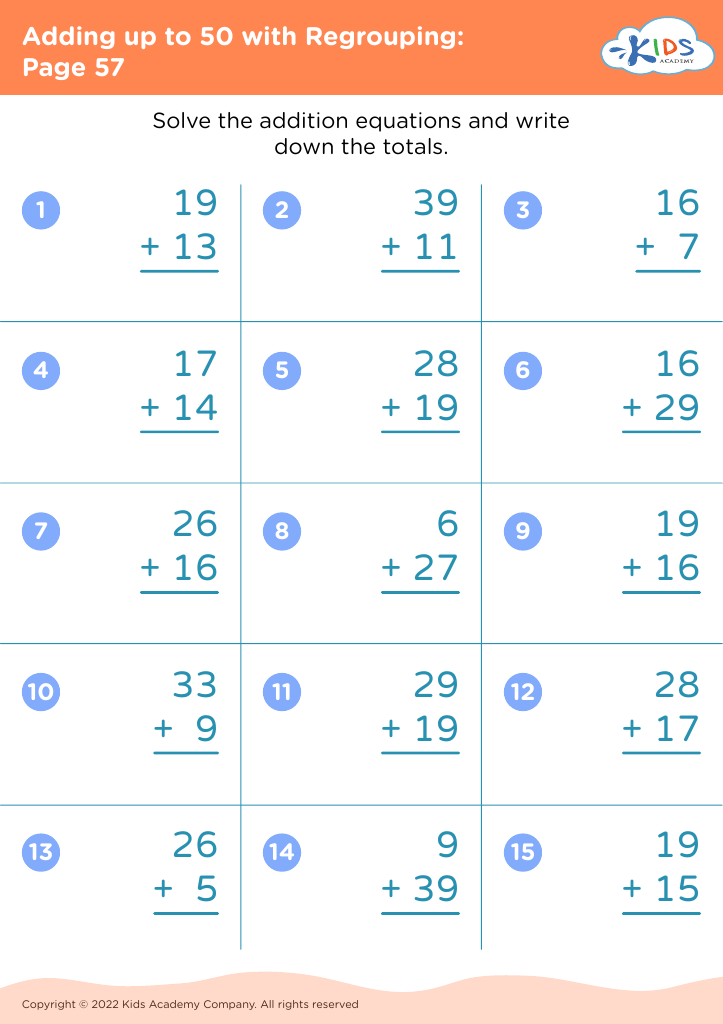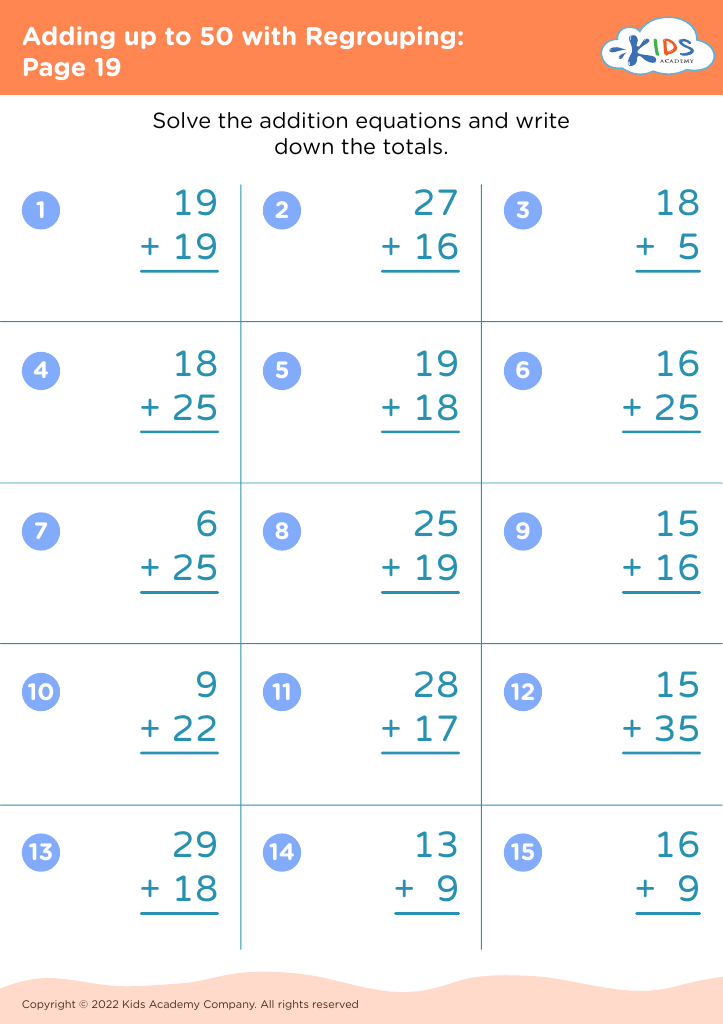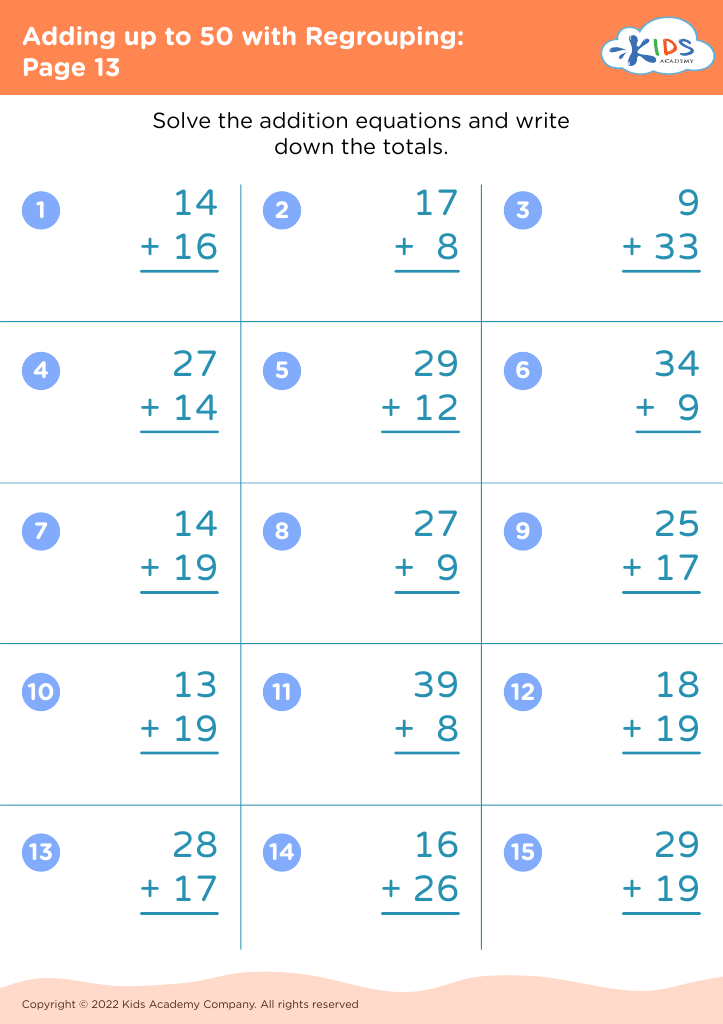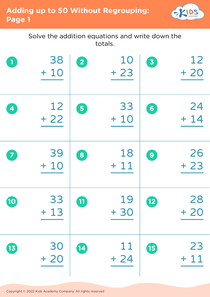Counting skills Adding up to 50 with Regrouping Worksheets for Ages 6-8
13 filtered results
-
From - To
Boost your child's counting skills with our engaging "Adding Up to 50 with Regrouping" worksheets, designed specifically for ages 6-8. These interactive resources help young learners practice and reinforce their math abilities while fostering a solid understanding of regrouping concepts. The worksheets are visually appealing and easy to follow, making math enjoyable and accessible. By incorporating fun exercises and varied problem types, students will enhance their ability to add numbers confidently, laying a strong foundation for future mathematical success. Explore our collection today to support your child's learning journey and build essential counting skills with each worksheet!
Counting skills and the ability to add up to 50 with regrouping are fundamental competencies that significantly impact a child's mathematical understanding and overall academic success. For ages 6-8, developing these skills lays a strong foundation for more complex mathematical concepts.
First, mastering counting and regrouping builds number sense—it helps children understand relationships between numbers, laying the groundwork for addition, subtraction, and multiplication. When students grasp how to regroup (carrying over numbers during addition), it enhances their ability to tackle larger numbers and prepares them for multi-digit calculations.
Moreover, these skills promote critical thinking and problem-solving abilities, which are essential not just in mathematics but in other subject areas and real-life situations. Strong counting skills also contribute to children’s confidence in math, encouraging a positive attitude toward learning and exploration.
Finally, teachers and parents are key players in instilling these skills through engaging activities and real-life applications. Supporting children in their early mathematical journeys not only prepares them for future academic challenges but also fosters a lifelong appreciation for learning, promoting resilience and success in a rapidly evolving world. Prioritizing these foundational skills ensures that children are equipped to excel and navigate future educational landscapes.

